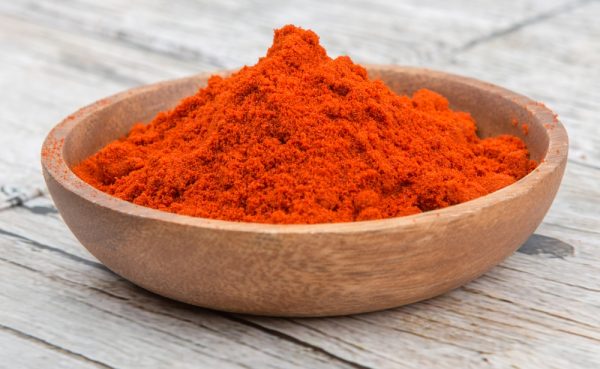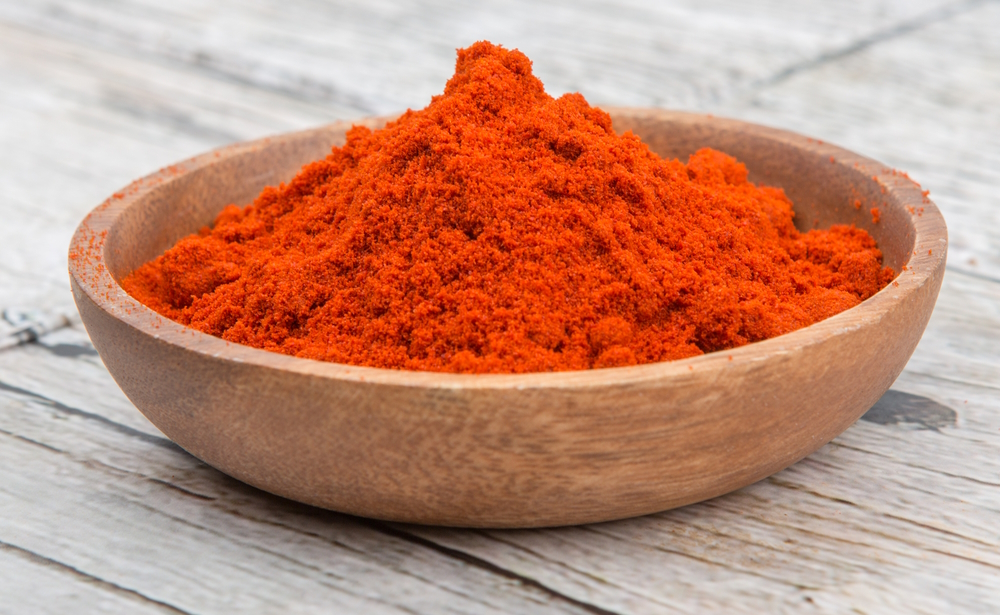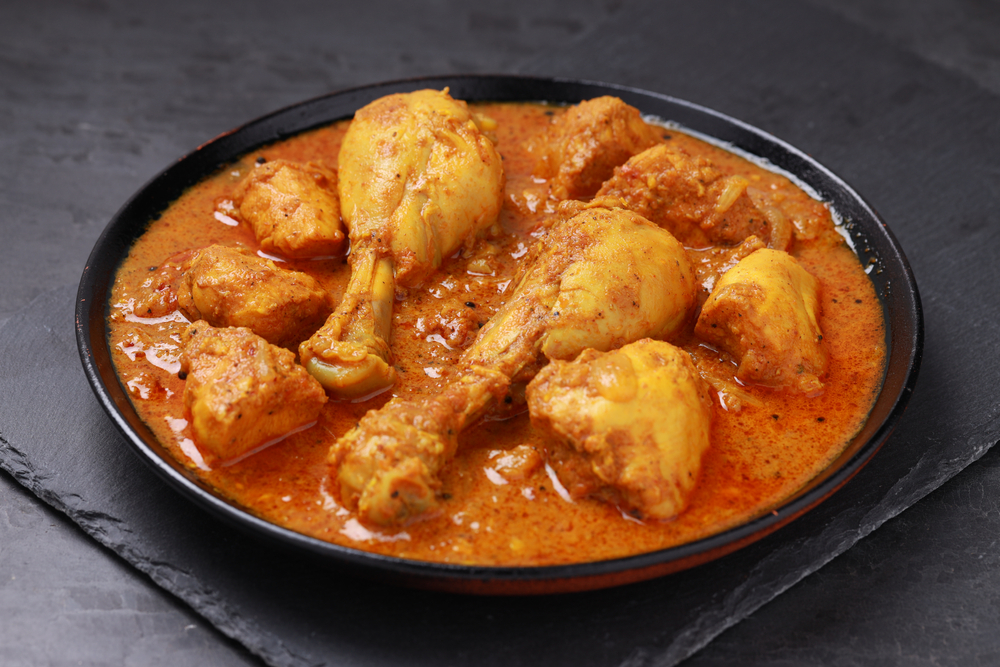Click to Skip Ahead
It’s hard to resist those puppy dog eyes when your canine companion begs for a bite of whatever you’re eating. In many cases, the food you’re consuming is safe for your dog to eat (though probably not healthy), but in other cases, you could end up feeding your pup something harmful and not just unhealthy. An excellent example of this is feeding your pet any food with spices on it, as many spices are harmful or even toxic to your furry friend.
If you like to eat spicy food, you might use a lot of paprika in your cooking, but can you give your pet food with paprika on it? Can dogs eat paprika? While this spice isn’t toxic to canines, feeding it to them is not advisable. This spice can be quite harmful to your pup if they consume too much, so it’s best to just avoid giving them any altogether.
What Is Paprika?
Paprika is a spice which is made from dried red peppers, usually a variety of Capsicum annuum. Some paprika is just the ground powder of dried bell peppers, while other versions of paprika are a mix of ground powders from Aleppo peppers and chili peppers. Due to the differences in paprika and the ratio of sweet and spicy varieties of peppers found in it, this spice can have varying flavors and spice levels.
You may find yourself with sweet paprika, which has the chili seeds removed during the process of creating it, making it less spicy. Or you could find yourself with hot paprika, which is much spicier than sweet paprika and typically has the chili seeds left during the creation process.
Want to know just how sweet and hot paprika compare in their levels of spice? The Scoville scale measures exactly how hot chili peppers are. Sweet paprika is mild enough to only register 100 to 250 SHU on this scale, while hot paprika normally registers anywhere between 500 to 1,000 SHU. For reference, jalapenos register between 2,500 and 8,000 SHU on the Scoville scale. So, paprika isn’t the spiciest spice out there, but it can still be pretty spicy.

Why Can’t Dogs Eat Paprika?
So, why should dogs not eat paprika? The reason is that it contains capsaicin, which is the compound that makes it spicy. Our four-legged friends can’t handle spice as well as we can, so even mildly spicy things could cause irritation to the mouth or nose or leave them with an upset stomach. Our pups need to stick to bland foods, not foods containing spices such as paprika.
Dangers of Feeding Paprika to Dogs
Paprika may not be toxic to our pups, but it isn’t without its dangers. Sweet paprika will likely affect your dog less than hot paprika, but both versions should be avoided to be safe.
The main danger to feeding paprika to your dog is that the capsaicin in this spice can cause your pup to experience digestive issues, such as gastrointestinal upset, vomiting, and diarrhea.
Paprika can also cause irritation to your pup’s mouth and nose. If your dog inhales a snoutful of paprika, they could end up with a sensitive nose and throat, leading to sneezing, coughing, and drooling. Eating hot paprika could also irritate your pet’s tongue or the inside of their mouth (think about how much your tongue hurts when you eat too much of something hot or sour).
All that spice burning the mouth could also make your pup extremely thirsty, leading them to drink a ton of water to eliminate the sensation. However, water does not reduce spiciness; rather, capsaicin is oil-based, so the molecules will spread around the mouth even more 1. Since your pet does not know this, they might drink even more water. If this occurs and your pet drinks too much water, it could lead to stomach pain and bloating.
Finally, there is a rare risk to paprika. This spice contains solanine, a compound found in vegetables from the nightshade family, including bell peppers.2 Solanine could be dangerous to your dog as too much can lead to an overdose; however, this is only a concern if your pet eats a massive quantity of paprika. Just a lick of this spice won’t cause a solanine overdose, so the chances of this being a significant danger are very small.

Are There Any Dog-Safe Spices?
There are a few spices that are safe for your pup to consume in small amounts. You should always check with your vet before using even dog-safe spices, though, to ensure it is 100% safe for your pup.
Turmeric
Turmeric is a spice known for its anti-inflammatory effects, so it could benefit your pup’s health, particularly if used as a supplement. Always check with your vet before giving your dog any supplements, though!
Cinnamon
Cinnamon may also offer anti-inflammatory benefits and a small amount of cinnamon powder is considered safe as an addition to your dog’s meal or baked into homemade dog treats. Take care though as this spice is often combined with nutmeg which is toxic to dogs. Larger amounts of cinnamon can cause health issues, it can irritate a dog’s mouth or stomach and even cause liver disease. Inhaling cinnamon powder can also irritate their respiratory system causing coughing and breathing difficulties.
Ginger
Small amounts of ginger may help ease stomach upset. Ginger is known for helping relieve nausea, but it may also aid in digestion. This spice can be powerful, though, so it’s another to use sparingly.

Conclusion
Paprika isn’t toxic to our canine pals, but it isn’t safe for them and should be avoided. Sweet paprika may not be extremely harmful to dogs, but hot paprika can cause digestive issues, irritation to the nose and throat, excessive thirst, and if a pup eats an overabundance of it, there’s a possible risk of solanine overdose. Before adding any spices to your dog’s diet, even ones considered safe, check with your vet; all dogs are different, and what’s suitable for one may not be suitable for another.
Featured Image Credit: MAHATHIR MOHD YASIN, Shutterstock













